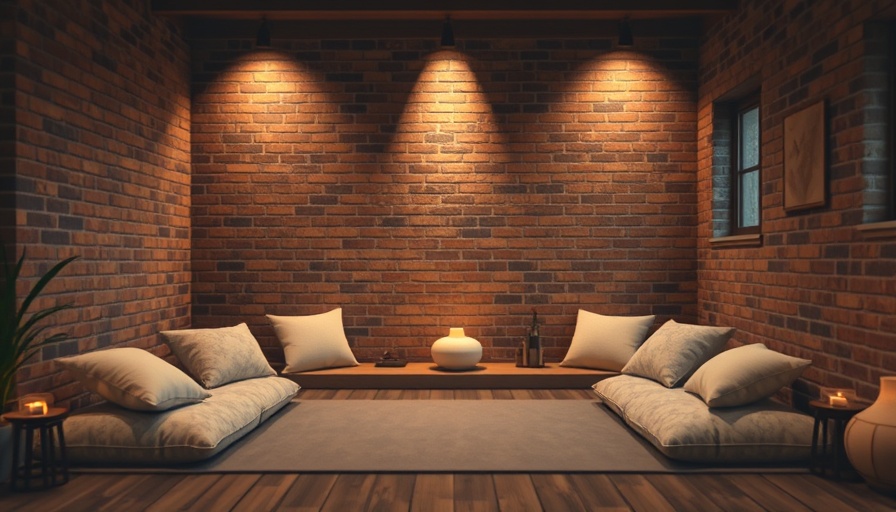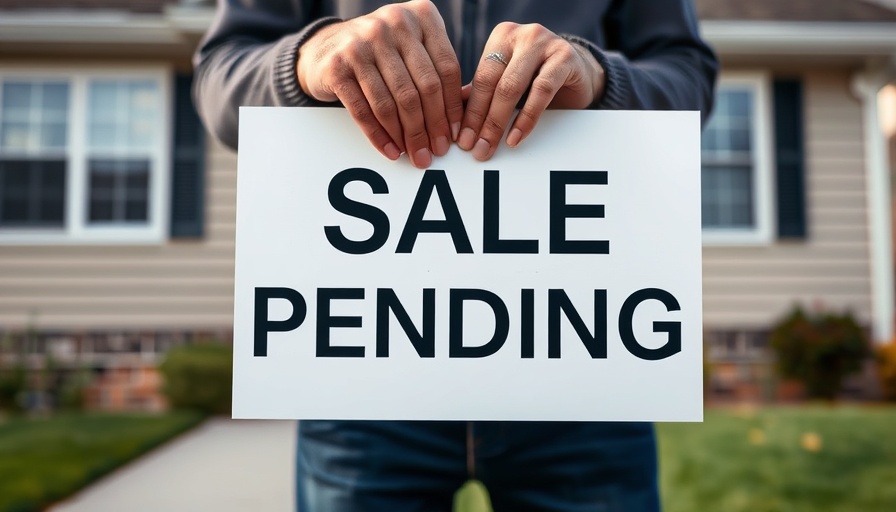
Create Your Personal Zen Oasis at Home
In our fast-paced world, where the demands of work and life constantly pull us in different directions, creating a peaceful meditation space at home is vital for mental well-being. Whether you're a busy real estate agent juggling listings or a homeowner looking to enhance your living space, the benefits of a dedicated calm area are immense. With simple designs and intentional elements, anyone can transform a small corner into a soothing sanctuary that embraces mindfulness.
Utilizing Small Spaces Wisely
Many might think that creating a meditation space requires extensive room, but that's not the case. Sarah Samaan from Winding Road Yoga emphasizes that even a small area can serve as a meditation corner. Using multifunctional furniture, like a storage bench that doubles as seating, can help maximize space without cluttering. This principle is particularly relevant for real estate professionals who might be working from compact offices or urban apartments. A minimal design can be both functional and calming.
The Importance of Lighting and Ambiance
According to interior designers, the right lighting is crucial. Soft, dimmable lights can create a serene atmosphere that invites relaxation, setting the stage for mindfulness practices. Combining warm lighting with grounding objects like stones or candles can enhance the meditative experience. For real estate pros, understanding how ambiance can change perception can be beneficial in staging homes, making them more inviting for potential buyers.
Choosing Calming Scents for Serenity
Your senses play a significant role in creating a peaceful environment. Using scents, such as lavender or sandalwood, can calm the mind and make meditation more effective. A diffuser can silently enhance your space while also serving as a decorative item. For a cozy touch, incorporate elements like soft throws or cushions to enhance comfort. This approach not only benefits personal relaxation but can also inspire clients looking for tranquil home design elements.
The Value of Routine in Your Zen Space
Consistency is key in establishing a meditation habit. Laura Sag from CHILL Anywhere advises choosing a specific spot to meditate daily. This routine reinforces the habit while creating a familiar space that invites mindfulness. For real estate agents, encouraging clients to visualize how spaces can serve personal habits establishes a deeper connection to the property they are viewing.
Enhancing the Experience with Journaling
Consider keeping a journal nearby for reflection. This not only allows thoughts to flow onto paper but enhances the meditative experience by giving it a practical outlet. By writing down insights, individuals can manifest their intentions and track their mindfulness journey. This practice offers a great selling point for homes—showing prospective buyers the importance of personal spaces for emotional health.
10 Essential Elements for Creating Your Zen Space
Here are ten practical ideas to elevate your meditation area:
- 1. **Warm Lighting**: Invest in dimmable lights that create a cozy ambiance.
- 2. **Comfortable Seating**: Use cushions, yoga mats, or cozy chairs to enhance comfort.
- 3. **Scent Diffusers**: Incorporate essential oils to create a calming aroma.
- 4. **Plants**: Add greenery to connect with nature and purify the air.
- 5. **Soothing Colors**: Opt for soft, muted colors to evoke peace.
- 6. **Decorative Elements**: Use calming artwork or inspiring quotes to uplift the spirit.
- 7. **Music or Sounds**: Gentle background music or nature sounds can aid meditation.
- 8. **Textured Fabrics**: Soft throws and cushions add a layer of comfort and warmth.
- 9. **Yoga Props**: Keep mats, blocks, and straps at hand for physical practice.
- 10. **Personal Touches**: Include items that hold special meaning to you, like photographs or tokens from journeys.
Encouraging Mindfulness in Real Estate
Understanding the importance of creating personal space can significantly impact real estate professionals' interactions with clients. As more individuals prioritize mental health and wellness, showcasing homes with spaces for relaxation and meditation can be a game-changer. Incorporating this knowledge into property listings, open houses, or client discussions can elevate your value as a real estate agent in today’s market.
Conclusion: Transform Your Home and Life
Creating a peaceful meditation space at home isn’t just a trend, it reflects a growing recognition of the importance of mental health in our lives. If you're on a real estate journey, understanding how to create inviting spaces for mindfulness can influence how you present properties, ultimately providing a more fulfilling environment for occupants. By adopting these tips, you’re not only enriching your own life but also enhancing the properties you showcase to potential buyers.
Ready to build your Zen space? Start small, and let each touch transform your corner into a haven of peace. Whether you're staging a home for sale or seeking personal sanctuary, the simple intentionality of these steps can lead to profound changes in your life, making every space a welcoming retreat.
 Add Row
Add Row  Add
Add 




Write A Comment